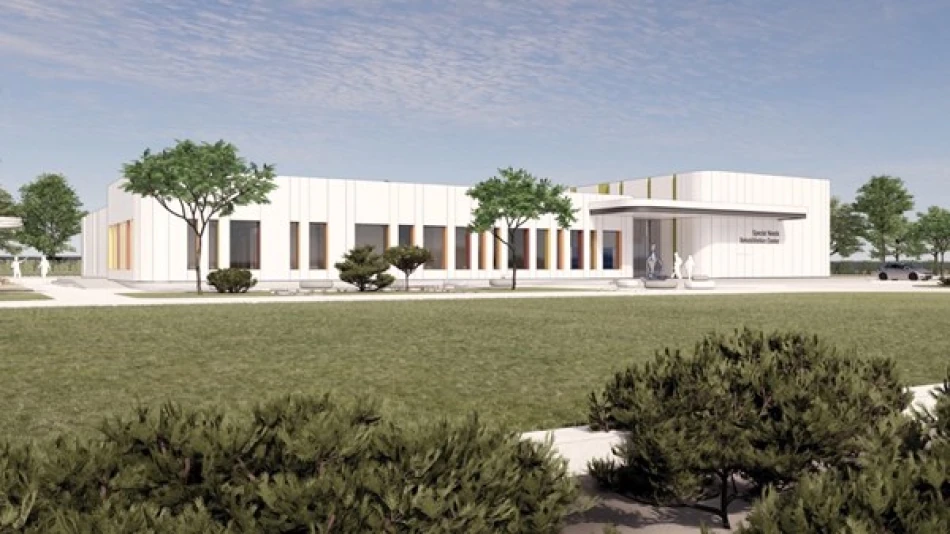
Zayed Humanitarian Legacy Celebrates 33 Years of Compassionate Impact
UAE's Zayed Foundation Marks 33 Years as Global Humanitarian Powerhouse
The Zayed Foundation for Charitable and Humanitarian Works has reached a significant milestone, celebrating 33 years of operation with over AED 2 billion in aid distributed across 185 countries. Founded by the late Sheikh Zayed bin Sultan Al Nahyan in August 1992, the foundation has evolved into one of the world's most influential humanitarian organizations, reflecting the UAE's strategic positioning as a global hub for charitable giving and soft power diplomacy.
A Legacy That Transcends Borders
Sheikh Nahyan bin Zayed Al Nahyan, Chairman of the Foundation's Board of Trustees, emphasized that the UAE's humanitarian leadership stems from decades of consistent commitment under President Sheikh Mohamed bin Zayed Al Nahyan's vision. This approach has transformed the nation into a model for international relief efforts, combining traditional Islamic values of charity with modern, systematic aid delivery.
The foundation's reach across 185 countries positions it alongside major international humanitarian organizations like the Red Cross and Doctors Without Borders in terms of global presence, though with a distinctly Middle Eastern approach to aid distribution.
Strategic Humanitarian Investments in 2025
Infrastructure and Healthcare Expansion
Dr. Mohammed Ateeq Al Falahi, the foundation's Director General, outlined ambitious projects launched in the first half of 2025. These initiatives demonstrate a sophisticated understanding of sustainable development, focusing on long-term impact rather than temporary relief.
Key projects include specialized care centers for children with disabilities in Kazakhstan, solar-powered water desalination plants in Egypt, Jordan, and Tanzania, and educational infrastructure in Tajikistan. The foundation also operates hospitals and medical centers across Pakistan, Mauritania, and Morocco through strategic partnerships with local healthcare institutions.
The Solar-Water Strategy
The emphasis on solar-powered desalination projects reflects the UAE's expertise in both renewable energy and water security—two critical areas where the nation has developed world-class capabilities. By exporting this technology through humanitarian channels, the UAE creates lasting infrastructure while showcasing its technological prowess.
Geopolitical Implications of Humanitarian Aid
The foundation's work extends far beyond charity, serving as a cornerstone of the UAE's soft power strategy. Unlike traditional Western aid models that often come with political conditions, the Zayed Foundation's approach emphasizes unconditional assistance, as Dr. Al Falahi noted, helping "every person in need without discrimination."
This strategy has proven particularly effective in regions where Western influence has waned, such as Central Asia and parts of Africa. The foundation's presence in Kazakhstan and Tajikistan, for instance, positions the UAE as a key player in post-Soviet humanitarian space, competing with Russian and Chinese influence through positive engagement.
Comparative Analysis: Gulf Humanitarian Competition
The UAE's humanitarian approach differs markedly from regional competitors. While Saudi Arabia focuses heavily on Islamic charitable giving through organizations like the King Salman Humanitarian Aid and Relief Centre, and Qatar emphasizes crisis response through entities like Qatar Charity, the UAE has built a more diversified, secular approach to aid.
This strategy allows the Zayed Foundation to operate effectively in diverse religious and cultural contexts, from Buddhist-majority regions to Christian-dominated areas, without the sectarian considerations that sometimes limit other Gulf humanitarian efforts.
Future Sustainability and Global Impact
The foundation's emphasis on strategic partnerships with both governmental and humanitarian organizations suggests a mature understanding of aid effectiveness. Rather than operating in isolation, the UAE is building networks that amplify its humanitarian impact while creating lasting diplomatic relationships.
As global humanitarian needs continue to grow—driven by climate change, conflict, and economic instability—the Zayed Foundation's model of combining immediate relief with long-term infrastructure development positions it as increasingly relevant. The organization's focus on education, healthcare, water security, and social care addresses root causes rather than merely symptoms of global poverty and instability.
This comprehensive approach, backed by substantial financial resources and political stability, ensures the UAE maintains its position as a major humanitarian player for decades to come, while simultaneously advancing its broader strategic interests in an increasingly multipolar world.
Most Viewed News

 Layla Al Mansoori
Layla Al Mansoori






